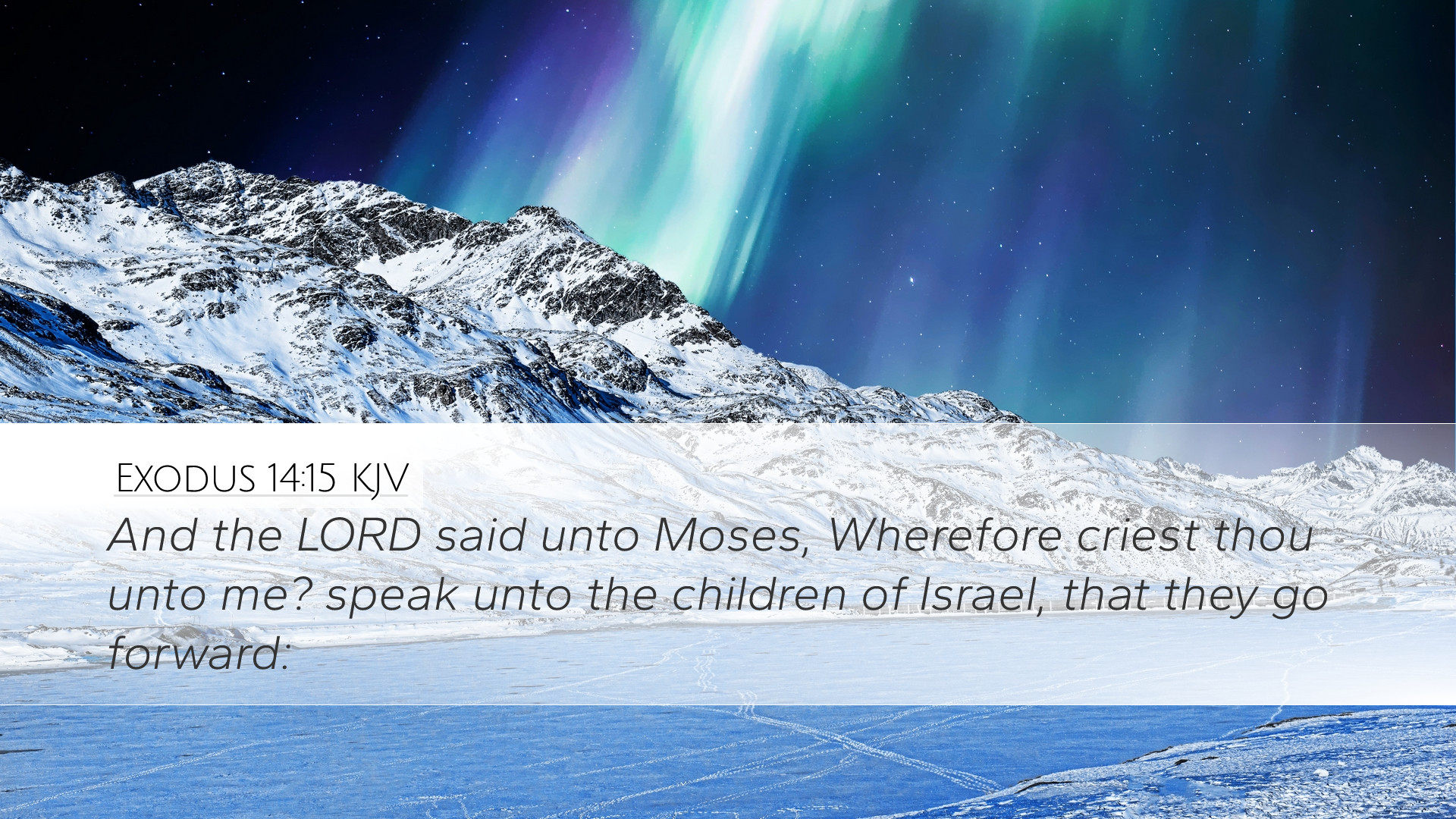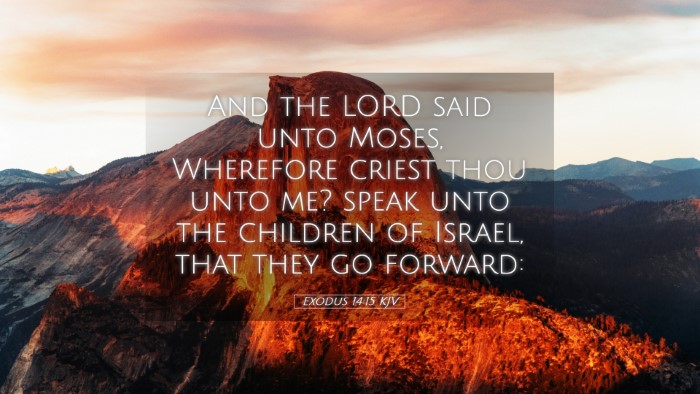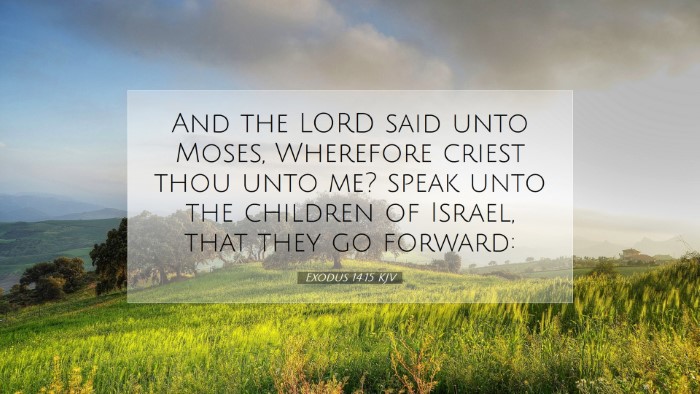Commentary on Exodus 14:15
Exodus 14:15 states, "And the LORD said unto Moses, Wherefore criest thou unto me? speak unto the children of Israel, that they go forward." This verse is a crucial moment in the Exodus narrative and provides deep insight into the interplay between divine action and human response. Below, we summarize key insights from several public domain commentaries, including those by Matthew Henry, Albert Barnes, and Adam Clarke.
Context and Background
To appreciate the full meaning of Exodus 14:15, we must consider its context within the larger narrative of Israel's escape from Egyptian bondage. After the miraculous plagues that befell Egypt, the Israelites stand at the edge of the Red Sea, pursued by Pharaoh's army, leading to a moment of great distress and fear. They cry out to God in their desperation, reflecting the human tendency to seek divine intervention in times of crisis.
The Divine Response
In this verse, God responds to Moses’ cries, indicating a pivotal shift from prayer to action. This divine inquiry, "Wherefore criest thou unto me?" suggests that God is reminding Moses of the authority and power bestowed upon him to lead the Israelites.
Insights from Matthew Henry
Matthew Henry elaborates on the nature of God's question to Moses. He notes that God was not reproaching Moses for praying, but rather urging him to take action. Henry emphasizes the necessity of moving forward in faith rather than remaining in a state of fear and desperation. This, he suggests, is a principle applicable to all believers: in times of trouble, prayer must culminate in action.
Insights from Albert Barnes
Albert Barnes focuses on the theological implications of God's command to “speak unto the children of Israel, that they go forward.” He interprets this directive as a call to faith and obedience. Barnes posits that the Israelites are not to dwell in fear or return to a life of bondage but must trust in God's promise and move ahead. He underscores the importance of faith in the face of seemingly insurmountable obstacles and encourages believers to embrace the unknown with confidence in God's deliverance.
Insights from Adam Clarke
Adam Clarke provides a detailed analysis of the phrase “go forward.” He explains that this command is not merely a physical journey but symbolizes spiritual progression and growth. Clarke emphasizes that to move forward is to trust in God's providence, even when the path ahead is unclear. He draws parallels with Christian life, where believers are often called to step out in faith, moving forward despite uncertainties and fears.
Theological Implications
This moment in Exodus reflects profound theological truths about God's guidance and the nature of faith:
- The Nature of God: God is depicted as both a voice of reassurance and a command to action. His involvement emphasizes the relational aspect of faith, where God actively engages with His people.
- Faith in Action: The necessity to move forward reinforces the idea that faith is not passive. Instead, it requires active engagement and obedience.
- Divine Timing: God's response to Moses underscores the importance of divine timing. While prayer is essential, there are moments when God calls for decisive action.
Applications for Believers
The message of Exodus 14:15 is particularly poignant for pastors, scholars, and students of the Bible, urging them to:
- Embrace faith as an active force in their lives, moving beyond prayer to trusting actions.
- Encourage congregations to confront their own "Red Sea" moments with faith, avoiding the pitfalls of fear and despair.
- Recognize that God often asks His people to step out in faith, promising His guidance and presence as they do.
Conclusion
In summary, Exodus 14:15 serves as a powerful reminder of the interaction between divine authority and human action. Through the insights of prominent commentators like Matthew Henry, Albert Barnes, and Adam Clarke, we are encouraged to understand the dynamic nature of faith, the call to action, and the unwavering presence of God in our life's journey. As believers, may we always seek to “go forward” in faith, trusting in God's purpose and provision.


